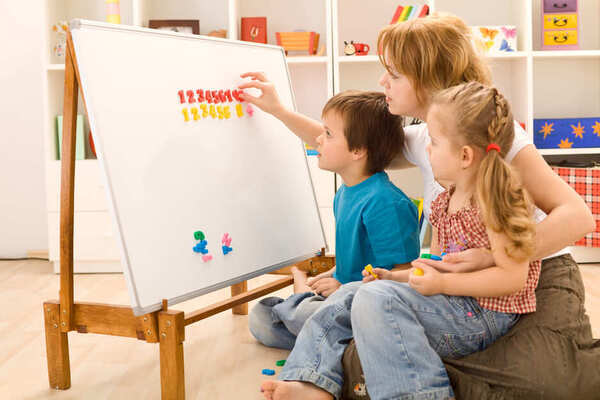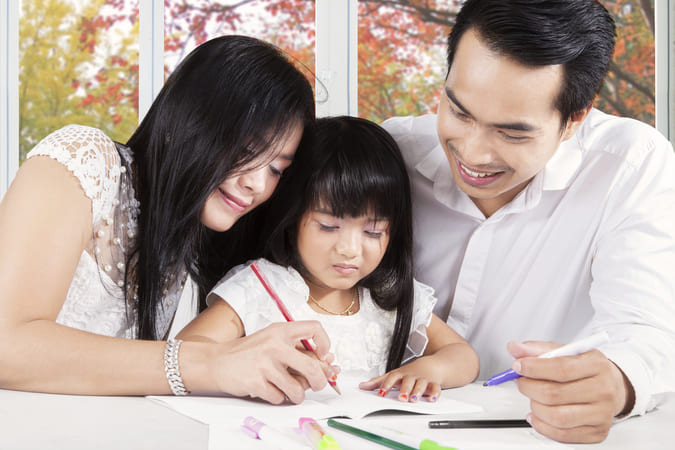Family Dynamics, Parenting
Parenting Styles and Personality: What’s the Connection?

Parenting styles are a crucial aspect of child development that can have a significant impact on a child’s personality. However, the relationship between parenting styles and personality is complex and multifaceted. While some studies suggest that certain parenting styles can lead to positive personality traits, others suggest that negative traits may also develop in response to certain parenting styles.
By examining a wealth of research and opinions, we will uncover the complex interplay between the environment provided by parents and the personalities that children develop, highlighting the pivotal role that parenting plays in a child’s life journey.
Key Takeaways:
- Parenting styles can have a significant impact on a child’s personality.
- There are four main parenting styles: authoritative, authoritarian, permissive, and neglectful.
- Authoritative parenting, which involves high levels of warmth and control, has been associated with positive personality traits such as self-esteem and social competence.
Understanding Parenting Styles
Understanding parenting styles is the first step in exploring the relationship between parenting styles and personality. Each style is characterized by different levels of warmth and control, which can have a significant impact on a child’s behavior and development.
These are the four main parenting styles:
Research by Diana Baumrind and Maccoby and Martin has identified these four parenting styles. It is important to note that parenting styles are not absolute and can vary depending on cultural, economic factors, social and personal relationships.
Let’s discuss each one to gain a clearer insight into how they shape a child’s personality and overall development.
Authoritarian Parenting

Authoritarian parents are often strict and controlling. Furthermore, authoritarian parenting style establishes strict rules and expects their children to follow them without question. Children of authoritarian parents may become anxious, withdrawn, and have low self-esteem.
Authoritative Parenting
In this type of parenting style, authoritative parents are nurturing and supportive. They also establish rules and guidelines, but they also encourage their children to express themselves and make decisions. As a result, children of authoritative parents are often confident, independent, and have high self-esteem.
Permissive Parenting
Parents who adopt a permissive approach are typically more indulgent parents and lenient, giving their children the freedom to make their own decisions with minimal rules in place. This can lead to children developing traits such as:
- Impulsivity and a rebellious nature
- May face difficulties in respecting authority figures
Uninvolved Parenting
Lastly, uninvolved parents are often emotionally distant and provide their children with limited guidance and support, bordering on being neglectful parents. As a result, uninvolved parenting style may lead children to grapple with low self-esteem, display inadequate social skills, and find it challenging to manage their emotions.
Here’s a quick overview to easily compare and contrast the four parenting styles.
| Aspect | Authoritative | Authoritarian | Permissive | Uninvolved |
|---|---|---|---|---|
| Description | Warm, supportive, sets rules | Strict, controlling, sets strict rules | Lenient, indulgent, minimal rules | Emotionally distant, neglectful |
| Child’s Personality | Confident, independent, high self-esteem | Anxious, withdrawn, low self-esteem | Impulsive, difficulty respecting authority | Low self-esteem, inadequate social skills |
| Academic Achievement | Higher grades, better performance, more likely to attend college | Worse performance, fear of failure | Varied, may struggle with self-discipline | Low academic performance, lack of motivation |
| Social Competence | High social competence, good skills | May struggle due to lack of autonomy | Varied, may struggle with respecting rules | Poor social skills, emotional instability |
| Mental Health | Better mental health outcomes, emotional regulation | May feel rejected, low self-esteem, prone to mental health issues | Varied, may struggle with self-discipline | Poor mental health outcomes, emotional instability |
| Long-term Effects | Successful, mature, good communication skills | Low self-esteem, poor social skills | Lack of self-discipline, may struggle with relationships | Low self-esteem, poor academic performance, poor social skills |
Effects of Parenting Styles on Child Behavior
Different parenting practices and styles can lead to different outcomes in children’s behavior, ranging from aggression and impulsivity to emotional stability and maturity.
When looking at how parenting styles affect a child’s temperament and behavior, three main areas are often considered:
- Discipline and Rules
- Support and Nurturing
- Expectations and Motivation
Discipline and Rules
One of the most important aspects of parenting is discipline.
Children need structure and rules to feel secure and develop a sense of right and wrong. However, the way parents enforce rules can have a significant impact on a child’s behavior. Strict rules and harsh disciplinary strategies can lead to aggression and impulsivity in children, while a more lenient approach can result in a lack of self-control.
Support and Nurturing

In addition to discipline, children also need warmth and nurturing from their parents. A lack of emotional support can lead to emotional instability and behavioral problems. However, too much coddling can also be detrimental to children’s healthy eating too, leading to a lack of independence and maturity.
Expectations and Motivation
Finally, parents’ expectations and motivation can also have an impact on a child’s behavior. Children who are expected to be responsible and mature tend to exhibit more self-control and emotional stability. Additionally, parents who encourage and motivate their children to succeed tend to raise more confident and successful children.
Parenting Styles and Child Development
Research has shown that the parenting style a child experiences can affect their academic achievement, social competence, and mental health.
Academic Achievement
As mentioned earlier, children who experience authoritative parenting tend to perform better academically than children who experience other parenting styles. Authoritative parents provide structure and support while also encouraging their children’s independence. This style of parenting has been linked to benefits like:
- Higher grades
- Better school performance
- Higher likelihood of attending college
On the other hand, children who experience authoritarian parenting, which is characterized by strict rules and harsh punishments, tend to perform worse academically. This may be because authoritarian parenting can lead to anxiety and fear of failure, which can negatively impact academic achievement.
Social Competence
Parenting styles also affect a child’s social competence. Children who experience authoritative parenting style tend to be more socially competent than children who experience other parenting styles. Overall, authoritative parents create a positive environment that helps children learn and develop good social skills.
In contrast, children who experience an authoritarian parenting style may struggle with social competence because they may not have the opportunity to develop social skills due to the strict rules and lack of autonomy.
Mental Health
In terms of mental health, children who experience authoritative parenting tend to have better sanity than children who experience other parenting styles. This may be because authoritative parenting provides a supportive and nurturing environment that fosters emotional regulation and resilience.
Conversely, authoritarian parenting may lead to children feeling unaccepted and suffering from diminished self-worth. Furthermore, these children may be more susceptible to mental health issues like:
- Depression
- Anxiety
Cultural Influence on Parenting Styles

Communication
Cultural backgrounds can also affect the way parents communicate with their children. For instance, in some cultures, indirect communication is preferred, while in others, direct and explicit communication is encouraged. In most cases, parents can use different methods to express their expectations and values.
Role of Language
Language can also play a role in shaping parenting styles. In some cultures, the use of honorifics and polite language is highly valued, and parents may use these linguistic features to convey respect and authority to their children. In other cultures, more informal language may be used, which can lead to a more relaxed and egalitarian parenting style.
On the other hand, different cultures have different approaches to parenting, and these approaches can significantly affect a child’s personality development, for example, in their food-related parenting practices.
Collectivist Cultures: In China and Japan, parents tend to use more authoritarian parenting styles, which emphasize obedience and conformity to societal norms.
Individualistic Cultures: In the United States and Western Europe, parents tend to use more permissive parenting styles, prioritizing independence and self-expression.
Parenting Styles and Adolescence
During adolescence, individuals undergo significant changes in personality and behavior. This is a critical period in a person’s life as they transition from childhood to adulthood. Parenting styles during this time can have a significant impact on the development of an adolescent’s personality.
Research has shown that parenting styles can influence the mental health of adolescents, as well as their personality and other psychological characteristics.
As mentioned earlier, parents who are authoritative and provide a balance of love, support, and discipline tend to have children with better mental health outcomes. In contrast, parents who are authoritarian and use harsh discipline tend to have children who are more prone to behavioral problems and poor mental health outcomes.
Good To Know: It is important to note that parenting styles are not the only factor influencing adolescent development. Other factors such as peer pressure, school environment, and genetic predisposition also play a role.
Long-Term Effects of Parenting Styles
Parenting styles can have a significant impact on a child’s personality in the long run. The way parents interact with their children can shape their values, beliefs, and behavior. Here are some of the long-term effects of different parenting styles:
Negative Effects
Lower Self-Esteem and Poorer Social Skills
Children raised by authoritarian parents tend to have lower self-esteem and poorer social skills. They may also struggle with self-regulation and independence. In adulthood, they may have difficulty forming positive relationships with others.
Difficulty Forming Positive Relationships
Permissive parenting style can lead to children who struggle with self-control and have lower self-esteem. They may also have difficulty internalizing values and may struggle with cause-and-effect relationships.
Struggles with Responsibility and Independence
In adulthood, they may struggle with responsibility and independence. Children raised by uninvolved parents may struggle with self-esteem, self-regulation, and values. Kids raised alone may struggle with emotional maturity and independence.
Positive Effects
Success and Maturity
Authoritative parenting, on the other hand, is associated with positive child outcomes. Children raised by authoritative parents tend to be more successful, independent, and mature.
Better communication skills
They also have better communication skills and can better regulate their emotions. Good communication skills allow individuals to articulate their emotions and understand the feelings of others.
Frequently Asked Questions
How do different parenting styles affect children’s personalities?
Children who grow up with authoritative parents tend to be more confident, self-reliant, and socially responsible. On the other hand, children raised by authoritarian parents may be more anxious, withdrawn, and have lower self-esteem. Permissive parents may raise children who are impulsive, lacking in self-discipline, and have difficulty following rules.
What are the long-term effects of parenting styles on personality?
Children raised in an authoritative parenting environment typically enjoy more favorable mental health outcomes and perform better academically. Conversely, those brought up by authoritarian or permissive parents might exhibit a greater prevalence of mental health issues, including anxiety and depression.
Can a child’s personality be changed by altering parenting styles?
Yes, altering parenting styles can have some impact on a child’s behavior and personality, but it is not a guaranteed solution.
How do parenting styles impact a child’s behavior?
- Authoritative parenting tends to promote positive behaviors such as self-discipline, self-esteem, and social responsibility.
- Authoritarian parenting may lead to negative behaviors such as anxiety, aggression, and a lack of social skills. Permissive parenting can lead to impulsive behavior, a lack of self-discipline, and difficulty following rules.
What are some negative consequences of certain parenting styles on personality?
- Authoritarian parenting may lead to low self-esteem, anxiety, and depression.
- Permissive parenting may lead to a lack of self-discipline and difficulty following rules.
- Neglectful parenting can lead to low self-esteem, poor academic performance, and a lack of social skills.
Do genetics play a role in how parenting styles affect personality?
Yes, genetics can play a role in how parenting styles affect personality. Studies have shown that certain genetic traits can make some children more susceptible to the effects of certain parenting styles.
Wrapping Up – SHAPE A Child’s SUCCESS Through EFFECTIVE Parenting Style
The complex relationship between parenting styles and personality development is an essential aspect of child development that deserves careful consideration and further research. Understanding the different parenting styles and their impacts on children’s personality traits, academic achievements, social competence, and mental health can be a valuable resource for parents, educators, and policymakers alike.
By fostering an environment of support, love, and appropriate discipline, parents can significantly contribute to the positive development of their children’s personalities, ensuring they grow into well-adjusted, confident, and successful adults.
For insights into how different parenting styles impact our children’s futures, check out my article on “How Various Styles Shape Our Children’s Futures.
